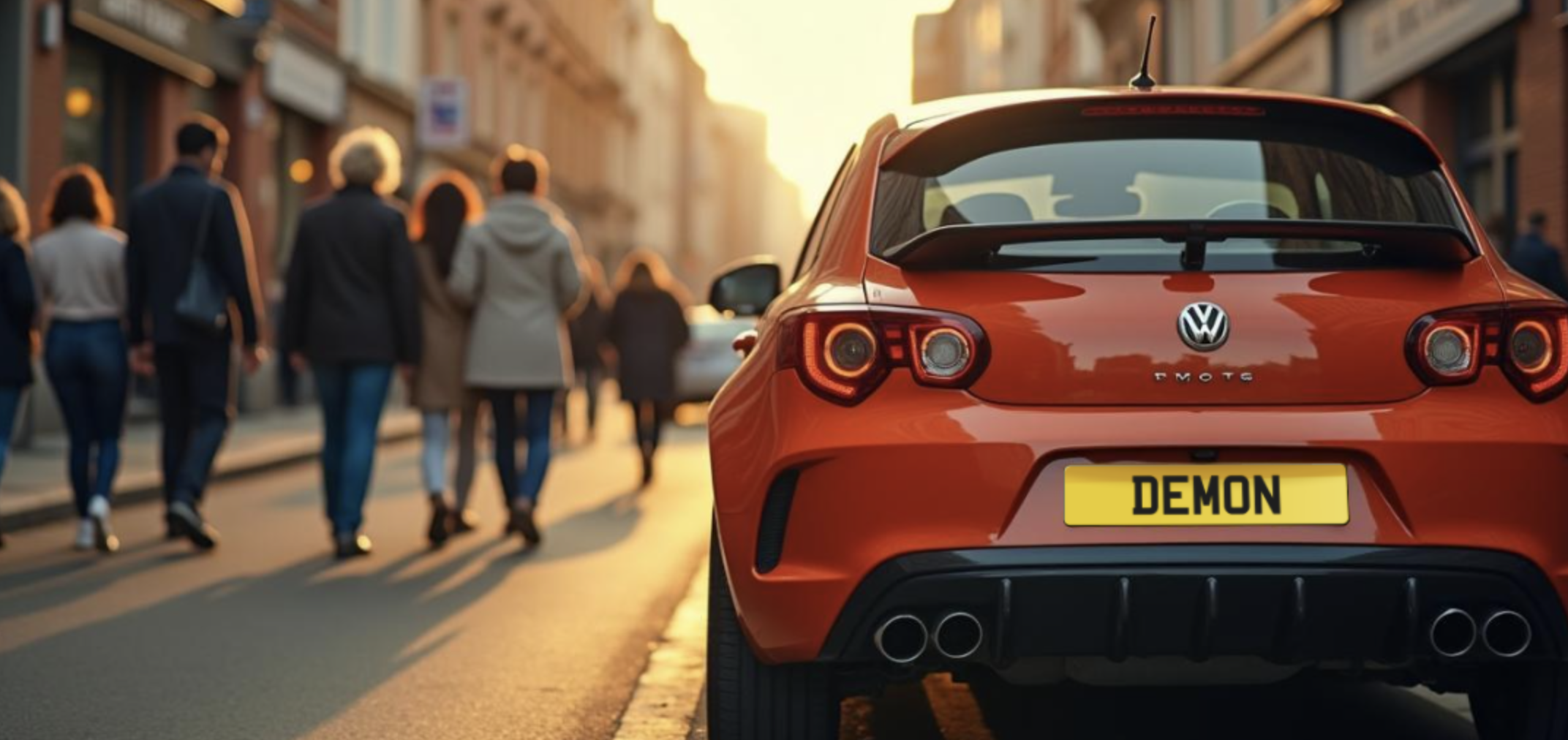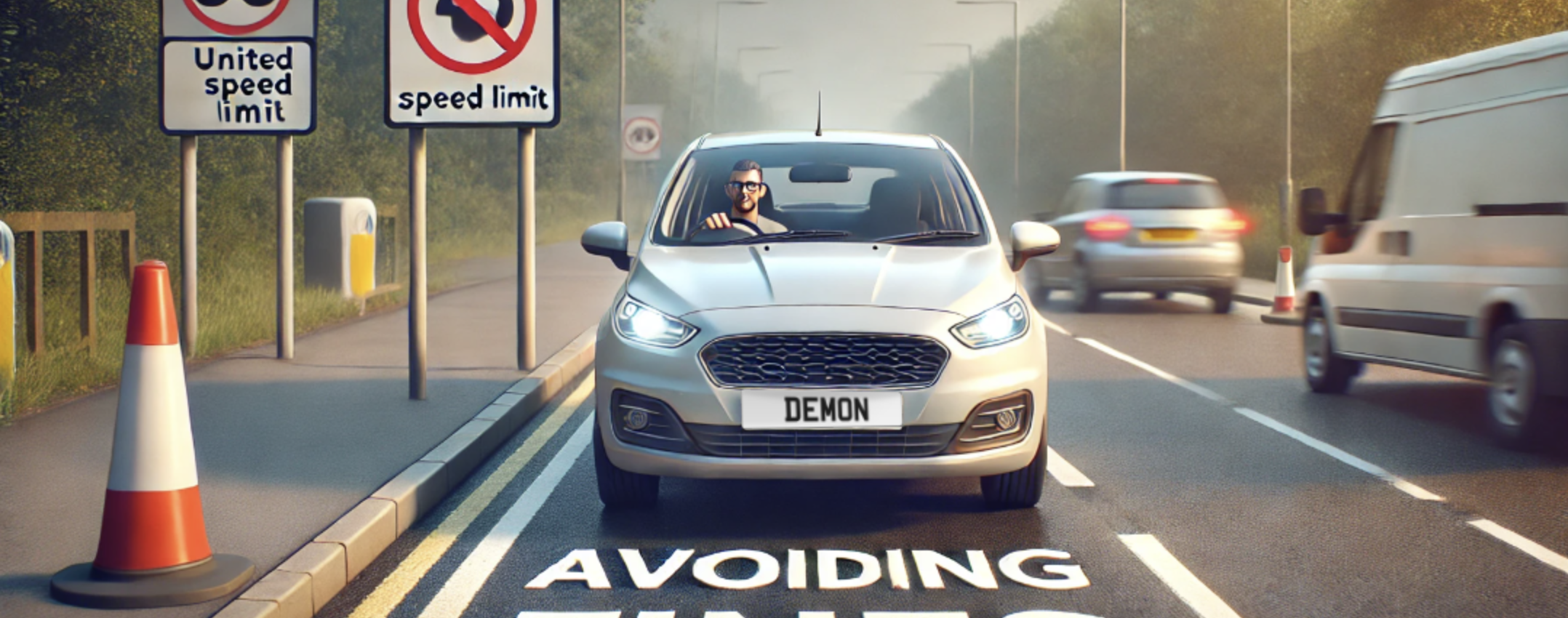Number plates may seem like a minor detail in vehicle ownership, but adhering to UK regulations is an absolute must. Legal number plates help maintain road safety, assist law enforcement, and avoid fines and other legal troubles, and this can be achieved through using a legal plate builder.
Breaking these laws can lead to a fine for an illegal number plate, penalty points on your licence, and complications during MOT tests or vehicle resale. Additionally, illegal plates can result in higher insurance premiums or legal challenges.
This article provides practical guidance regarding a fine for an illegal plate, general UK number plate regulations, the potential penalties for non-compliance, and straightforward steps to ensure your plates meet legal standards. By the end, you’ll have the information needed to stay on the right side of the law and avoid unnecessary fines.
Overview of Number Plate Regulations

Number plates have been mandatory in the UK since 1903 when they were introduced under the Motor Car Act. Initially, the goal was for vehicles to be identified to improve road safety and enforce accountability. Over time, these regulations have evolved, with reflective plates becoming mandatory in 1968 and ongoing updates to meet modern enforcement needs, such as Automatic Number Plate Recognition (ANPR).
The Driver and Vehicle Licensing Agency (DVLA) is responsible for the standards of number plates. Current requirements include specific dimensions, fonts, and reflective materials. Plates must use the mandatory “Charles Wright” typeface, a standardised font that keeps characters easy to read. Additionally, number plates require a white background for the front of the vehicle and yellow for the rear, with black characters to improve visibility.
These standards are not just about appearances—they contribute to safety. Clear, legible plates assist enforcement officers in identifying vehicles, particularly in emergencies or during investigations.
What Makes a Number Plate Illegal
Not all number plates on the road meet the legal standards set by the DVLA. Alterations or modifications can render a plate illegal, leading to fines and other penalties. Understanding what constitutes an illegal number plate is key for vehicle owners.
One of the most common issues is altering the spacing or positioning of characters to spell out names or words. While this might seem harmless, it breaks the rules and makes the plate harder to read. Similarly, changing the font to something other than the approved “Charles Wright” typeface can also result in non-compliance.
Other illegal features include using reflective coatings or non-approved materials, which can interfere with the plate’s readability, especially by ANPR cameras. Plates that display non-standard symbols, such as logos or graphics, also fail to meet the required specifications.
Deliberate attempts to mislead, such as obscuring registration numbers to avoid detection by cameras, are considered serious offences and can lead to harsher penalties. Vehicle owners should always be cautious about customisations and stick to legal options, such as 3D number plates and 4D number plates, which meet UK standards when purchased from authorised suppliers.
Common Fines for Illegal Number Plates
Using an illegal number plate in the UK can result in various penalties, depending on the nature of the offence. The DVLA and local authorities regularly enforce these rules to maintain road safety and compliance.
In 2022 alone, over 12,000 fixed penalty notices were issued to drivers for illegal number plates. One notable case involved a driver fined £500 for repeatedly ignoring warnings about obscured plates. Similarly, a regional crackdown in Manchester in 2020 issued over 300 penalties during a single weekend, showcasing the seriousness of enforcement efforts.
For minor offences, such as slightly incorrect spacing, drivers may receive a fixed penalty notice of up to £100, issued on the spot. However, for more serious violations—such as deliberate attempts to obscure characters or use non-approved materials—penalties can escalate. Persistent offenders may face court action, where fines can be significantly higher.
Factors That Influence Fine Amounts
The amount of a fine for using an illegal number plate depends on several factors. Authorities assess the severity of the offence to determine the appropriate penalty. For example, minor non-compliance, such as an incorrect font or slightly misaligned spacing, may result in a lower fixed penalty fine.
Deliberate alterations, such as tampering with characters to mislead enforcement cameras or obscuring the registration number, are treated more seriously. Those who’ve ignored prior warnings can lead to higher fines or even court proceedings, where penalties are more severe.
Regional differences in enforcement intensity can also affect the likelihood and amount of fines. Some areas may prioritise checks on number plate compliance more frequently than others, leading to stricter enforcement for repeat offenders.
How to Avoid Fines for Illegal Plates

Meeting compliance with DVLA guidelines is straightforward. Regularly inspect your plates to confirm the font, size, spacing, and materials meet legal standards. Always purchase new plates from authorised suppliers like Demon Plates, who guarantee compliance. Customisations, including 3D number plates and 4D number plates, are legal when produced within UK regulations. Avoid any unauthorised alterations that may compromise the plate's legibility or design.
Keep all documentation related to your number plates, especially when purchasing replacements or customised options. This provides proof of compliance in case of any disputes with authorities.
Steps to Rectify an Illegal Plate
If you suspect your number plate doesn’t comply with UK regulations, it’s best to address the issue promptly. Compare your plate against the official DVLA guidelines to identify potential problems like incorrect spacing, unauthorised fonts, or non-approved materials.
Once non-compliance is confirmed, replace the illegal plate with an authorised supplier to make sure it meets legal standards. After fitting the new plates, notify the DVLA of any corrections or updates, particularly if the plate design or registration details have changed. Keeping records of the replacement means you’re prepared to answer any future questions about compliance.
Sticking to UK number plate regulations is essential to avoid fines, legal complications, and other unwanted consequences. Compliant plates keep your vehicle roadworthy and help prevent additional costs, such as higher insurance premiums or MOT failures.
By understanding the rules, checking your plates regularly, and choosing authorised suppliers for replacements, you can avoid common pitfalls and stay compliant with DVLA standards. If you’re unsure about your plate’s legality, act quickly to address any issues.
